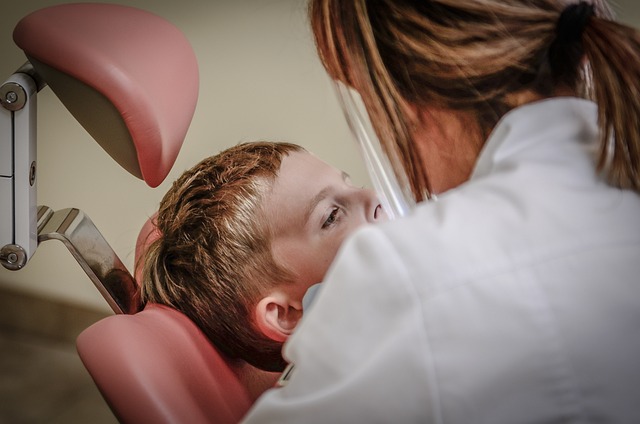Finding Emergency Dental Care When You Need It Most
Dental emergencies can strike at any time, leaving you in pain and desperate for immediate care. Whether it's a severe toothache, broken tooth, or other urgent issue, knowing how to access prompt dental treatment is crucial for your oral health and overall wellbeing. This guide explores emergency dental care options available when regular office hours don't align with your urgent needs.

Dental emergencies rarely occur during convenient hours. When severe tooth pain, trauma, or dental damage happens outside regular practice hours, finding immediate care becomes crucial for both comfort and oral health preservation.
When Do You Need Same Day Dental Services?
Several situations warrant immediate dental attention rather than waiting for a routine appointment. Severe, persistent tooth pain that interferes with sleep or daily activities requires urgent care, especially when accompanied by swelling or fever. Knocked-out teeth have the highest chance of successful reimplantation when treated within the first hour. Broken or cracked teeth with sharp edges can cut the tongue or cheeks, creating additional injury risks.
Abscesses and serious infections pose significant health risks if left untreated, potentially spreading to other parts of the body. Lost fillings or crowns leave sensitive tooth structures exposed, causing pain and increasing infection risk. Orthodontic emergencies, such as broken wires cutting into soft tissues, also require prompt attention.
What Services Do Overnight Dental Providers Offer?
Emergency dental services vary depending on the provider and facility type. NHS emergency dental services typically focus on pain relief and immediate stabilisation rather than comprehensive treatments. These services often include temporary fillings, pain management, antibiotic prescriptions for infections, and basic trauma care.
Private emergency clinics usually offer more extensive treatment options, including same-day crowns, root canal therapy, tooth extractions, and cosmetic repairs. Some facilities provide 24-hour services with on-call dentists, while others operate extended evening and weekend hours. Many emergency providers can handle oral surgery, dental trauma reconstruction, and complex restorative procedures.
How to Find Dentists That Take Emergency Walk-Ins
Locating emergency dental care requires knowing multiple resources and contact methods. The NHS 111 service provides 24-hour guidance and can direct patients to available emergency dental services in their area. Many NHS trusts operate dedicated emergency dental clinics with specific hours and locations.
Private dental practices often have emergency contact numbers for existing patients, with some offering after-hours services. Dental hospitals attached to universities frequently provide emergency services at reduced costs, staffed by supervised dental students and qualified practitioners. Online directories and dental association websites maintain lists of emergency providers by region.
Hospital accident and emergency departments handle severe dental trauma but typically focus on managing pain and infection rather than definitive dental treatment. Pharmacies can provide temporary pain relief and may offer advice on managing dental emergencies until professional care becomes available.
How to Prepare for Emergency Dental Treatment
Proper preparation can significantly improve emergency dental treatment outcomes and reduce stress during urgent situations. Creating an emergency dental kit with basic supplies helps manage situations until professional care becomes available. Essential items include pain relievers, temporary filling material available from pharmacies, gauze for bleeding control, and ice packs for swelling reduction.
Maintaining current dental insurance information and understanding coverage limitations prevents delays during emergencies. Many insurance plans have specific protocols for emergency care approval, and knowing these requirements beforehand streamlines the treatment process.
Keeping emergency contact numbers readily accessible, including your regular dentist’s after-hours number, local emergency dental services, and NHS 111, ensures quick access to guidance. Having a small container available for knocked-out teeth, along with milk or saline solution for transport, can be crucial for successful tooth reimplantation.
Understanding the Cost of Emergency Dental Services
Emergency dental treatment costs vary significantly depending on the provider type, treatment complexity, and timing. NHS emergency dental services charge standard NHS fees, with Band 1 treatments (examinations, diagnoses, preventive care) costing £25.80, Band 2 treatments (fillings, extractions, root canal treatment) at £70.70, and Band 3 treatments (crowns, dentures, bridges) reaching £306.80.
Private emergency services typically charge premium rates for out-of-hours care, with consultation fees ranging from £80-£200. Simple procedures like temporary fillings may cost £100-£300, while complex treatments such as emergency root canals can reach £800-£1,500. Weekend and night-time services often include additional surcharges of 50-100% above standard rates.
| Service Type | Provider | Cost Estimation |
|---|---|---|
| Emergency Consultation | NHS Emergency Service | £25.80 |
| Emergency Consultation | Private Practice | £80-£200 |
| Temporary Filling | NHS Service | £70.70 |
| Temporary Filling | Private Clinic | £100-£300 |
| Emergency Root Canal | NHS Service | £70.70 |
| Emergency Root Canal | Private Practice | £600-£1,500 |
| Tooth Extraction | NHS Service | £70.70 |
| Tooth Extraction | Private Practice | £150-£600 |
Prices, rates, or cost estimates mentioned in this article are based on the latest available information but may change over time. Independent research is advised before making financial decisions.
Dental emergencies can be both painful and stressful, but understanding available options and preparation strategies helps ensure appropriate care when needed most. Whether utilising NHS emergency services or private providers, prompt attention to dental emergencies prevents complications and promotes optimal treatment outcomes.




